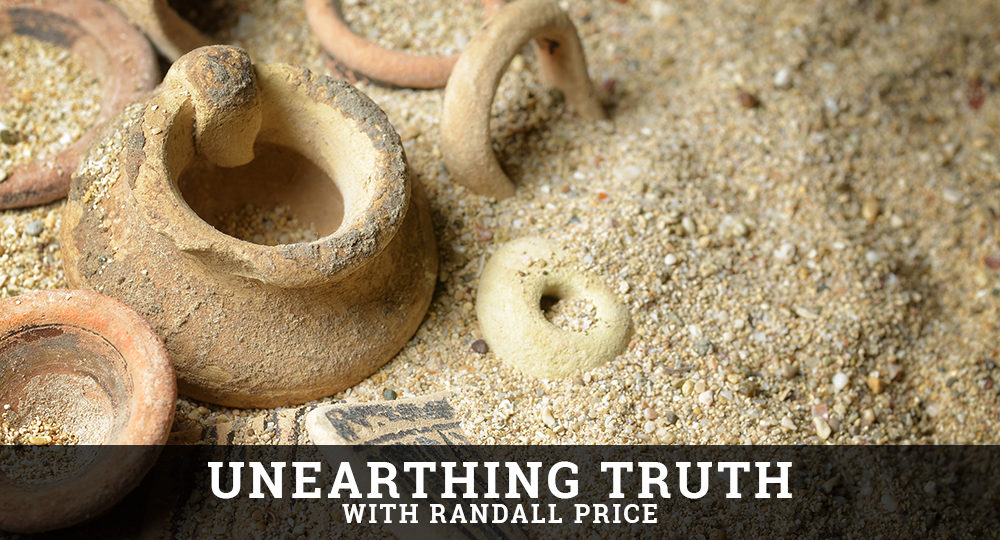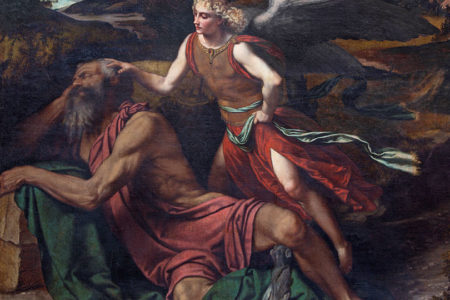Did Moses Write the Torah?
The Bible says explicitly Moses wrote the Torah. Exodus 24:4 states, “Moses wrote all the words of the LORD”; and Deuteronomy says, “Moses finished writing the words of this law [Torah] in a book until they were complete” (31:24, NASB). Why, then, would anyone question whether Moses wrote the Torah?
Yet the majority of mainline Bible scholars, including many evangelical ones, either deny Moses’ authorship or have difficulty accepting it. For decades, critical scholars have taught that Moses and his audience were illiterate and that no Hebrew language existed at his time. They claim Hebrew developed from Phoenician and only emerged as a distinct language in the 10th century BC, while Moses lived earlier, in the 13th century BC; and the laws of the Torah were composed much later, in the Persian period (5th century BC).1
Though we cannot address all these erroneous views, we can deal with whether Moses could write and if Hebrew existed in his day. This issue is critical because the Bible rests on the foundation of a Mosaic Torah (Josh. 22:5; 23:6; 1 Ki. 2:3; Neh. 8:1; Dan. 9:13; Mal. 4:4). Even the Lord Jesus said, “Did not Moses give you the law?” (Jn. 7:19). In fact, Jesus declared that belief in Him depended on believing Moses: “If you believed Moses, you would believe Me; for he wrote about Me” (5:46).
The archaeological record and the Scriptures show Moses could write.
Egyptologist Filip Taterka said one of Egypt’s first rulers, Aha, mastered writing and was said to have written medical treaties. Furthermore, there is mention of a letter personally written by Pharaoh Isesi at the end of the third millennium BC. According to Taterka, when the pyramids were built, a special institution existed to teach royal children reading and writing2; and from the time of Queen Hatshepsut (15th century BC), royal educators were well known. It is possible Hatshepsut was Moses’ Egyptian “mother”; and because Moses was raised in the royal court as a nobleman, he was taught to read and write. Acts 7:22 states, “Moses was learned in all the wisdom of the Egyptians, and was mighty in words and deeds.”
As an educated nobleman, Moses would have learned Egyptian; and as an Israelite, he also would have known whatever form of Hebrew existed at the time. The Torah we have was written in Hebrew; and though some of the Hebrew terms demonstrate the author’s familiarity with Egyptian, nothing indicates the text was translated from Egyptian. But what type of Hebrew existed this early?
Exploration in the Sinai desert at the turn of the last century uncovered an unknown graffiti in caves from the Middle Kingdom–New Kingdom periods (the times of Joseph and Moses). The writing borrowed characters from Egyptian hieroglyphics. But unlike Egyptian, it contained an alphabet of 22 letters that closely resembled the later Phoenician alphabet. Clearly Semitic, the language was used to record names and events important to people traveling through the Sinai or working in the nearby copper mines.
This language, well in use before the time of Moses, is readable as Hebrew3 and matches the Israelites’ history. It appears only in this area at the time the Israelites were in Egypt and then only in Canaan, after the Israelites had settled there. Though this evidence is not widely known and not yet accepted by mainline scholars, it makes the case that Moses had available to him an early form of Hebrew in which he could write the Torah.
Perhaps this language was a special gift from God to His covenant people to enable them to retain the knowledge of Him and His laws.4 Orthodox Judaism contends that every letter of the Torah was given directly by God (Ex. 31:18), thus separating it from other Old Testament divine revelation. Nevertheless, our Bibles begin with the Five Books of Moses; and thanks to archaeological discoveries, we can affirm its words of truth, especially as they point to our Messiah (Dt. 18:15–18).
ENDNOTES
-
- These views are based on the JEDP theory that dissected the Torah into different compositions produced by different schools in different time periods, as well as the supposed lack of archaeological support for the Exodus.
- “Did the pharaohs know hieroglyphic writing?—Polish Egyptologist explains,” Science in Poland (March 31, 2014) <tinyurl.com/pharaohWrite>.
- While still controversial, see Douglas Petrovitch, The World’s Oldest Alphabet: Hebrew as the Language of the Proto-Consonantal Script (Jerusalem: Carta Jerusalem, 2016).
- This was the conclusion drawn by the recent film and book by Tim Mahoney, The Moses Controversy (Thinking Man Films, 2019).








